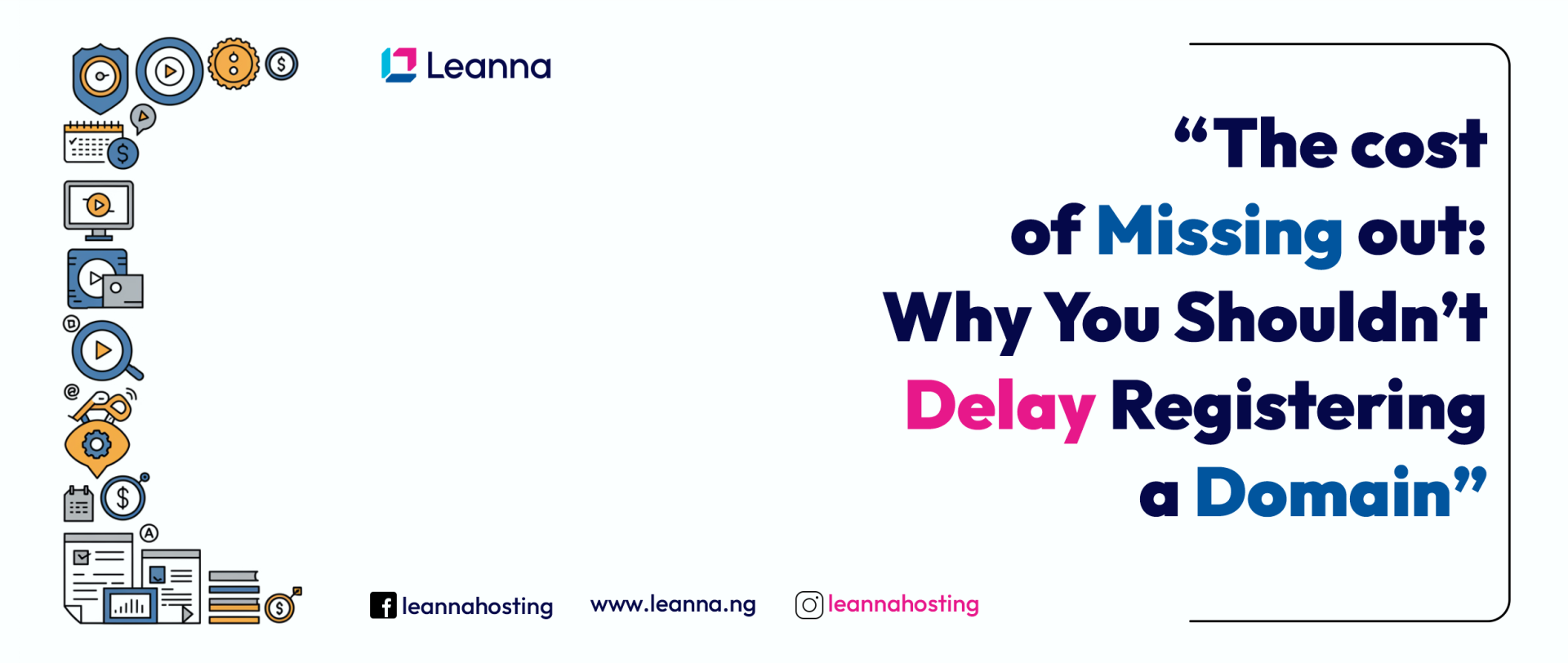
In the vast landscape of the internet, every website you visit has a unique address known as a domain name. Domain names are the easy-to-remember addresses that direct you to websites instead of the numerical addresses that computers use. Whether you’re browsing your favorite social media site, shopping online, or reading a blog, you’re interacting with domain names.
Understanding the importance of domain names is very essential for any business, corporation, or individual seeking to establish its presence online.
Here is a quick overview of the topics we will cover in this article:
-
What is a Domain Name?
-
The Purpose of a Domain Name
-
Types of Domain Names
-
Choosing the Right Domain Name
-
Registering a Domain Name
-
Managing and Protecting Your Domain Name
What is a Domain Name?
A domain name is essentially the address of your website on the internet. It’s a string of text that users type into a browser’s search bar to visit your website. For example, the domain for ‘Leanna’ is ‘Leanna.ng‘
The internet is a massive global network connecting countless computers through cables. Each computer has a unique identifier called an IP address, a series of numbers like 192.0.2.1, that allows it to communicate with others on the network.
Imagine trying to remember a string of numbers every time you wanted to visit a website. That’s why domain names were created. They’re easy-to-remember words that can be used instead of those complex numbers. The Domain Name System (DNS) is like a digital phonebook that translates these words into the numbers computers understand.
The Purpose of a Domain Name
-
Branding and Identity: A domain name helps you establish an online identity. It is a major part of your brand that makes it easy for your customers to find and remember you online. A unique, relevant domain name gives your brand recognition and credibility.
-
Human-Friendly Addresses: The main purpose of a domain name is to make IP addresses more human-friendly. Instead of having to remember 192.0.2.1, you can simply remember leanna.com.
-
SEO Benefits: Domain names also impact your search engine optimization (SEO). A well-chosen domain name that includes relevant keywords can help search engines understand your site’s content, potentially improving your brand’s search ranking.
-
Trust and Credibility: A professional domain name builds trust and credibility with your target audience. It shows that whether you are a business, organization, or individual, you are serious about your online presence.
-
Email Services: Owing a domain name allows you to create custom email addresses (e.g., [email protected]), which can help build your image professionally and make communication easier.
Types of Domain Names
-
Top Level Domains (TLDs)
These are the highest level domain names. Common TLDs include .com, .org, and .net. For example in the domain name leanna.ng, “.ng” is the top-level domain. Another type of TLDs are the Country Code Top Level Domains (ccTLDs) like .uk for the United Kingdom, .ca for Canada and .ng for Nigeria.
They are used by websites that want to target audiences in a specific country.
-
Second-Level Domains (SLDs)
This is the customizable part of the domain that you chose, like “leanna” in leanna.ng. Website owners often use their registered business names as their second-level domain names. While it’s usually a good idea, you don’t have to make your domain name exactly like your business name.
These could include instances when a domain is already taken, too long or a different domain name might be more relevant for your website content.
-
Subdomains
A subdomain may also be called a hostname. The www part in most URLs is technically a subdomain, suggesting that a website is part of the World Wide Web. However, some websites have an additional subdomain besides the hostname.
They help organize your website’s content and can serve different purposes.
Choosing the Right Domain Name
Here are some quick tips to help you choose a domain name for your next website:
-
Your domain name should reflect your business or content. It should be relevant to and associated with your brand.
-
Your domain name should be short, simple, and easy to spell. This makes it easier for users to remember and type correctly.
-
Avoid hyphens and numbers. They can cause confusion and are often harder to remember. Stick to words whenever possible.
-
Choose the right TLD for your purpose, .com is one of the most popular, but depending on your needs, other TLDs might be appropriate.
Registering a Domain Name
You can buy your desired domain names from one of the many domain name registrars. However, buying a domain does not automatically give you a hosting service. For that, you will need a website hosting account as well.
At leanna.ng, you can register your desired domain name with access to a hosting account as well. This allows you to manage both services under one account, and you also don’t need to worry about changing name server settings for your domain.
Managing and Protecting Your Domain Name
Understanding and managing your DNS settings is crucial for ensuring your domain directs users to the correct website. At Leanna, by using our auto-renewal options, you can keep track of the renewal dates to avoid accidentally losing your domain name.
Security is an essential requirement to protect your domain from cyber threats by enabling domain locking, using strong passwords, and considering additional security measures like SSL certificates.
Conclusion
Having a domain name is a fundamental part of the internet. They make it easy for users to find and remember websites. Whether you’re starting a personal blog, a small business, or a large corporation, choosing and maintaining the right domain is essential. So, take the time to find a domain name that represents your brand and secure your spot in the digital world.
Prefer short URL to this article? use this: https://leanna.ng/z1qw




